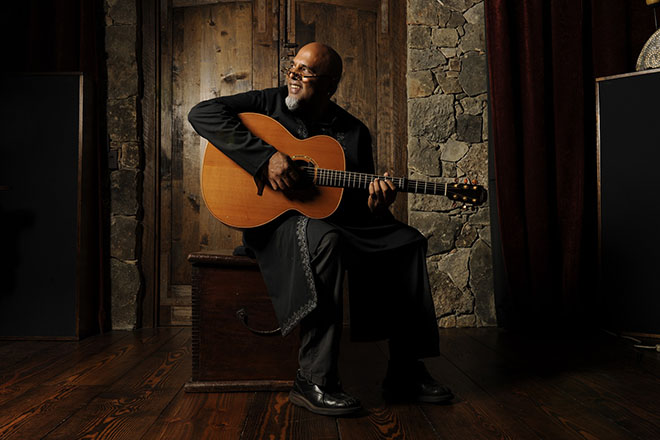
Photo credit Rodney Bursiel
Video Feature & Web-Exclusive Interview
Artist: TOM PRASADA-RAO
Video: “$20 Bill”—for George Floyd
TOM PRASADA-RAO SPEAKS TRUTH WITH SIMPLICITY IN HIS SONG “$20 BILL”
“$20 Bill,” an instant classic for 2020, is a powerful song for George Floyd. It is a modern-day hymn of justice for the oppressed. Musician Dan Navarro said it best: “Tom has written the song of a lifetime.”
Tom Prasada-Rao has been a musician’s musician—a songwriter known among musicians. But now with “$20 Bill” more of the world is finding out about his insightful songwriting and his soul-searching music that makes us think beyond ourselves. His three versions of the song have been viewed on YouTube and Facebook over 200,000 times, while other musicians’ versions of “$20 Bill” total over 100,000 views.
Earlier this summer, The Immediate Family’s Steve Postell shared his version of the song and wrote on his social media: “50 years ago this month, CSNY released “Ohio,” a perfect musical protest over the Kent State murders. A few days ago, Tom Prasada-Rao wrote a song to honor George Floyd, and it is equally as perfect a statement. I want to introduce you to one of our finest living songwriters.”
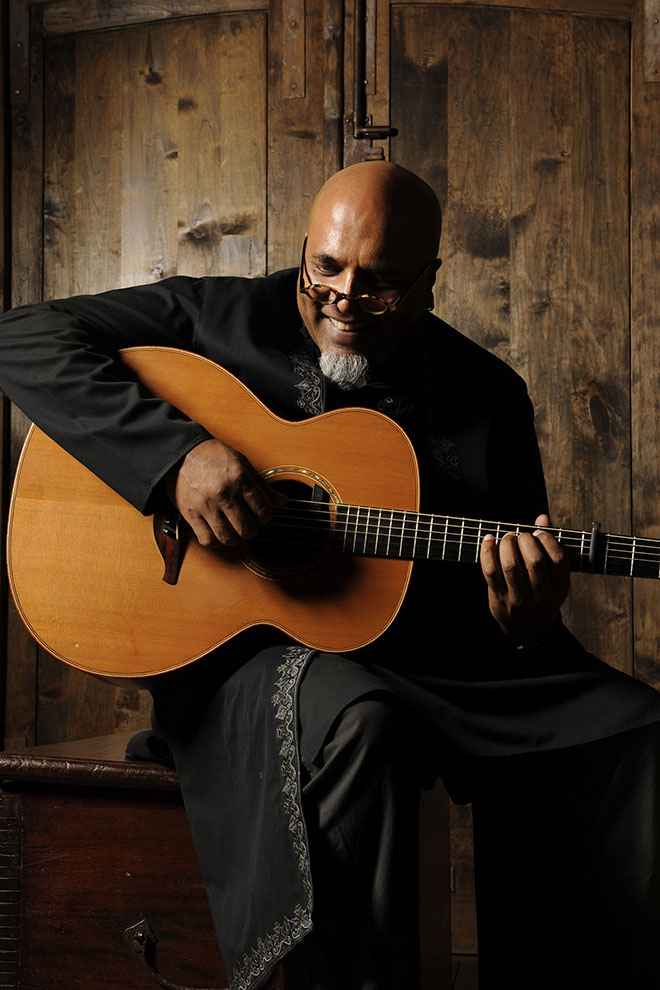
Photo credit Rodney Bursiel
This song feels like an unintentional protest song. It doesn’t seem like he was trying to make it a protest song, yet it has the power to galvanize us for the greater good. With a voice of strength and tenderness, Prasada-Rao speaks for every one of us who, in an utter state of helplessness, has ever experienced the dark side of humanity. While he sings, “Some get to tell their own story and write their own epitaph,” Tom gives a voice to the persecuted and suppressed, those who will never again have the chance to shine the beauty of their lives into a dark world that desperately needs what they have to offer.
Tom Prasada-Rao’s “$20 Bill” is a modern-day hymn of justice for the oppressed and those who choose to see beyond themselves.
Like the voices of Mahatma Gandhi, Viktor Frankl and other beacons of wisdom, hope and love who have gone before us, “$20 Bill” shines a light on the truth that we are not completely helpless. There is something that you and I can do. Prasada-Rao sings, “So now let this be our communion, it’s time to break the bread. Do this in remembrance just like the Good Book said.” Through these words we are reminded of one freedom that can never be taken away—choice. We can choose to remember we are all God’s children. We are one. So let us live this truth with hope and true love in this age of uncertainty.
Thank you, Tom Prasada-Rao, for this timeless reminder and for channeling the gift of this modern-day hymn of justice for the oppressed and those who choose to see beyond themselves.
Prasada-Rao is known for being the winner of the prestigious Kerrville New Folk, WAMMIE (Washington Area Music Association) award for “Best Male Vocalist,” his soulful vocals, well-crafted lyrics and rhythmic approach to music. Billboard praised him as “the most compelling presence to emerge in the singer-songwriter genre.”
We talked with Tom Prasada-Rao about his passion for songwriting, the unique way he weaves stories into songs, how he continues to remain hopeful, his constant search for truth and justice and how he unintentionally challenges us to seek the better angels of our nature.
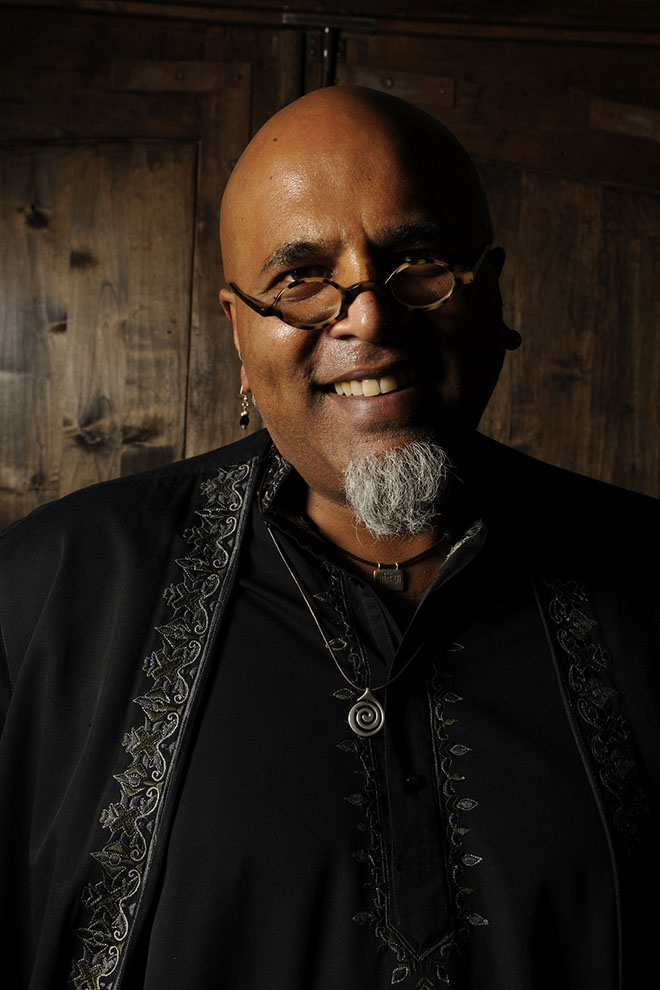
Photo credit Rodney Bursiel
TOM PRASADA-RAO Interview with
M Music & Musicians magazine publisher, Merlin David
How did the idea for the song “$20 Bill” come to you?
It was a few days after George Floyd was killed in Minneapolis. I was watching CNN. I was recovering from a Chemo fog. These lines came to me and I thought: I don’t have the energy to work on this. But the lines kept tumbling out of my head, it felt like an avalanche. It’s all I could do to write them down and try to remember the other lines rushing behind them. It was all so quick—in the horror of seeing all the grief expressed in the streets of Minneapolis and St. Paul. I didn’t think about it too much. It just came out. It was like I stuck my hand in the water and pulled out a fish.
On May 25, George Floyd was murdered. By May 28, you had written this song. Why do you think this song came so easily?
I really don’t know. I felt the song wasn’t about me. It wasn’t connected to my ego or anything. I wasn’t trying to project anything. I was just trying to express my incredulity of this man’s life being taken away for a supposed counterfeit $20 bill. This is so wrapped up in racial issues and policing issues—and those are really big issues. But the song doesn’t actually say anything about that. It doesn’t even say he was a black man killed by white police. It just keeps it simple. How stupid and ridiculous is this—that this man’s life is taken for a $20 bill. It was a crystalizing moment that changed the world. Sometimes those things tend to be so immediate—so visceral. You can’t explain it. You just feel it. It felt like the whole world felt it together.
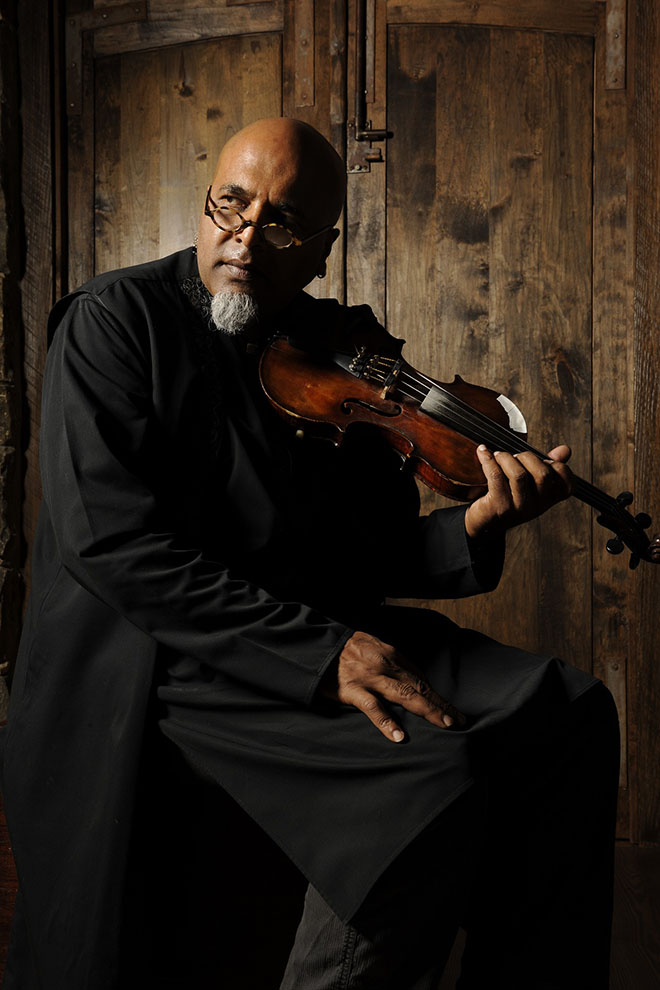
Photo credit Rodney Bursiel
Over 160 musicians globally have done their versions of this song. Did you ever think this song could be done in so many different ways?
Never in my wildest dreams did I imagine it would reach so many people—give voice to a cry that people need to utter out to the universe. It’s amazing to see the diversity of artists who’ve sung their version on Facebook. There’s an amazing spoken word piece by Ronny Cox, the great Hollywood actor, blues versions, a lot of folky versions. I’m overwhelmed and humbled. I don’t even have the words to express how I feel.
Why do you think this song has resonated so deep and wide?
My friend Dan Navarro called me the other day. He said: ‘this song is like Bob Beamon.’ I said ‘what do you mean Bob Beamon—you mean the long jumper in the Olympics?’ Dan said: ‘he tried jumping jump after jump, and then one time, he jumped two feet longer than any jump he’d done before. That’s what this is, Tom. You’ve written a song that people really want to hear. You’ve written the song of a lifetime.’
What insight have you gained?
There’s that old acronym: KISS—keep it simple stupid. As a writer, I repeat it to myself quite often, theoretically. I’ve learned the truth is best heard in simple ways. If there’s anything I’ve learned from this—it’s to get my ego, as a writer, out of the way—and say what needs to be said. This is the craziest thing I’ve ever seen—someone losing their life for 20 bucks. I just wanted to express that without trying to be Dylan Thomas or the next Leonard Cohen. I wanted to just say it.
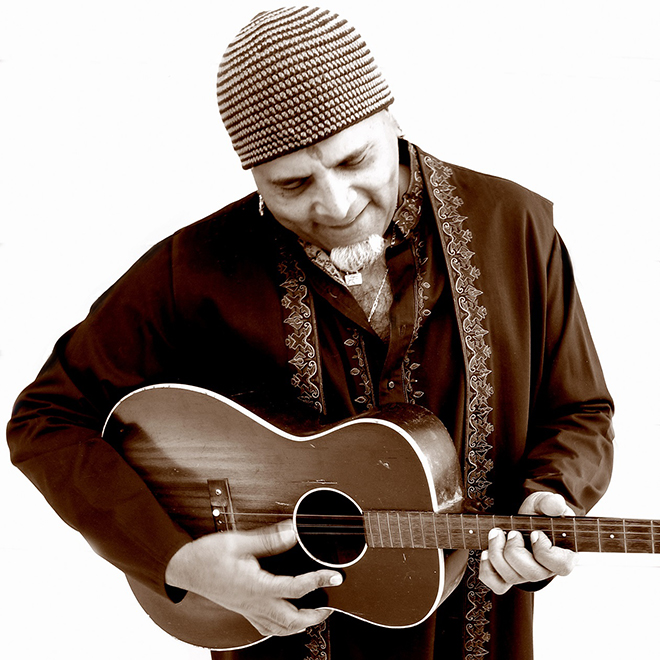
Photo credit Dee Hill
How has your approach to songwriting changed after your diagnosis with cancer?
It’s changed quite a bit. I’m not physically able to do a lot of things that I used to do—especially instrumentally—on guitar or whatever instrument I may be playing. My voice is not able to do some of the things it was capable of doing before. It has helped in streamlining my approach—I understand better now that it’s really not about perfection or technical wizardry on your instrument—or even proficiency. It’s about the truth—playing the things that need to be played in order to convey the song you want to convey. I’ve found it liberating. I don’t mourn the things I’m no longer capable of because I know there’s a tradeoff. I’ve gained insight—going with the truth and leaving all the other things behind.
How do you stay hopeful in this unique socio-political climate, especially with your health situation?
We’re in some unprecedented times. The moment in time that really turned my head around was maybe three or four weeks ago. President Obama had a little talk online. It was post-George Floyd and he was talking about the demonstrations. He said, ‘The difference between now and the 60s is the diversity. Now, there are more white kids, than black kids, on the streets protesting the death of a black man. Just that right there should give you pause and give you hope. This now is different than back then. I’ve looked at it in that light since then. Even though the story was about the protest and violence the first few days, it’s now turned into this movement. It’s the new civil rights movement. It’s Martin Luther King Jr. all over again. That’s what’s happening right now.
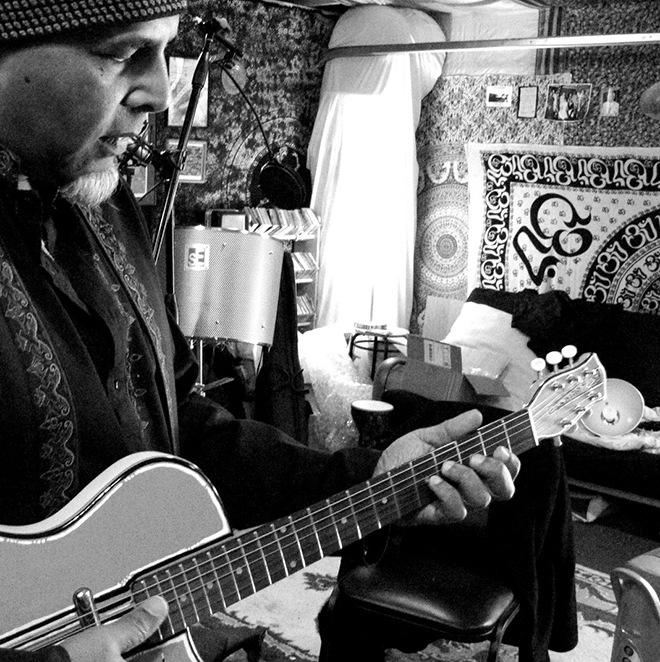
Photo credit Dee Hill
What is the best advice someone has given you?
There’s something that sticks in my head from 25 years ago. It was from Murray Krugman, a guy I didn’t know too well. He produced a few Blue Oyster Cult albums and wrote some songs. He put together a compilation album I was on a long time ago and he came to see me perform live. He said something that frustrated me to no end at that time. He said, ‘Can I have a minute?’ I said ‘Sure.’ He said, ‘Tom, it was really great to hear you. I still feel like I haven’t heard you.’ I feel like it has taken 40 years to find it.
Is there a new album anytime soon?
I’ve been working for a couple of years now on an album called The Complete History of Love, Volume 1. I hope to have it out in a few months.
What is the best advice you’d like to give upcoming musicians—or your teenage self?
Don’t let anything get in the way of your dream. Don’t let the expectations surrounding you put out the fire.
Where can new fans get more info and stay updated?
www.TomPrasadaRao.com
https://www.youtube.com/channel/UCK39y-XivTkdDINRAvBmv6A/
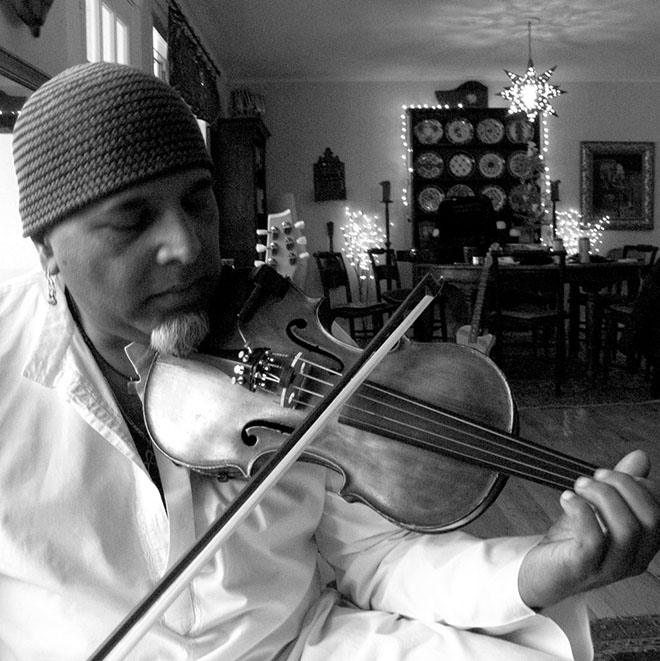
Photo credit Dee Hill



comment closed